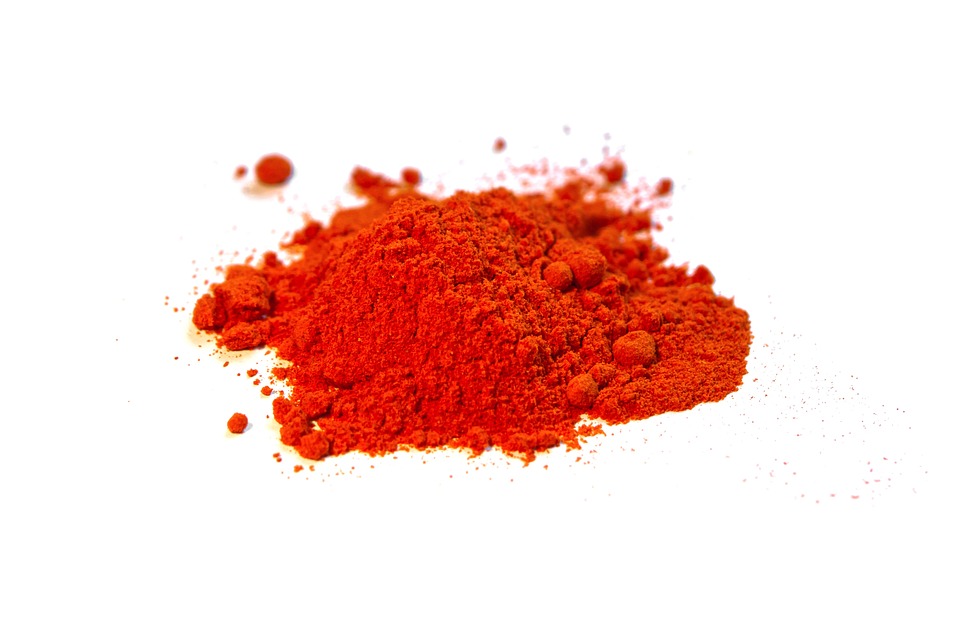Paprika is one very popular spice gotten by grounding bell, peppers, chili peppers, and other dried peppers. It is used in preparing various cuisines, especially because of its color and flavor. The spice is native to South America and West Indies and is mostly produced in California, Spain, Hungary, Spain, and South America. In fact, it is also the national spice of Hungary.
Paprika may vary in color–from deep red to orange-red and is usually sprinkled on dishes such as stir-fries, soups, pizzas, rice, goulash, etc. It is also used to season foods like vegetables and meats. To help you stay healthy, paprika contains a lot of nutrients, including vitamins and minerals. It acts as an energizer and stimulant as well as being effective in treating tiredness, lethargy, depression, amongst other health benefits.

Although paprika is majorly used to enhance flavor in foods, most people are unaware of its many health benefits.
Provides Fiber
Did you know that with just a tablespoon of paprika, you can get about 10% of the recommended daily fiber needs for your body? What more, fiber is known to prevent and relieve constipation. Additionally, it lowers cholesterol levels, regulates blood sugar levels, and aids weight loss.
Supports Healthy Digestion
Paprika helps to promote healthy digestion by increasing the amount of saliva and stomach acids secreted. This, in turn, helps to break down food and provide nutrients that energize the body.
Provides Vitamin B-2
Paprika is made up of 7% of the recommended Vitamin B-2 needed by the body. Vitamin B-2 provides energy, combats migraine headaches, prevent certain common conditions such as eczema, acne, dermatitis, cataracts, and arthritis.
Contains Vitamin B-6
Vitamin B-6 helps to improve metabolism, control blood pressure, and prevent stroke, cardiovascular disease, as well as some forms of cancer.
The Vitamin B6 found in paprika supports the production of melanin, a pigment responsible for the color of your hair. For instance, sweet paprika powder, when combined with henna, gives the hair a reddish tint. However, it’s best to test a little amount on your wrist before applying it on your head.

Provides Potassium
Paprika contains potassium which helps in lowering the risks of hypertension and stroke. Potassium is also helpful in regulating blood pressure.
Loaded with Vitamin A and Carotenoids
Carotenoids are known to improve eyesight and are effective in the development of healthy cells. In fact, the carotenoids in paprika are the reason for its deep red color. Also, the zeaxanthin and lutein found in carotenoids prevent harmful light rays from hurting the eye tissues, and its vitamin A content improves night vision.
Gives Vitamin C
A tablespoon of paprika is made up of about 8% of the daily requirement of Vitamin C in the body. This vitamin C protects the body against cardiovascular disease, immune system deficiencies, eye disease, prenatal health issues, and skin problems.

Contains Vitamin E
Paprika contains vitamin E that helps in promoting a seamless circulation of blood in the system, acts as an antioxidant, and prevents cellular lipids from being destroyed.
Since Paprika contains a significant amount of Vitamin E, it helps the body produce red blood cells. It also aids the rapid healing of wounds. For instance, if you happen to cut yourself, simply sprinkle some paprika powder on the affected spot and press gently for some seconds with a clean cloth.
Provides Vitamin K
The Vitamin K in paprika is helpful in preventing tooth decay, varicose veins, cardiovascular disease, osteoporosis, mental health problems, infectious diseases, as well as certain forms of cancers such as liver and lung cancer.
Contains Iron
Many people are unaware that as little as a tablespoon of paprika contains about 9% of the daily iron requirement of the body. As a matter of fact, iron supports metabolism by helping the body in energy production.
Incorporating paprika into your diet ensures that you get more iron. This nutrient supports cellular metabolism and helps the cells to conduct a series of chemical reactions known as the electron transport chain which leads to the production of energy. Also, iron supports the work of two proteins–hemoglobin and myoglobin that are responsible for transporting and storing oxygen need by tissues to function.
Mildly Anti-Inflammatory
Paprika actually possesses some anti-inflammatory properties. This means that a regular consumption of paprika can help reduce the risk of heart disease, control existing cardiac problems, lower blood pressure and blood triglycerides, and provide a soothing effect to both stiff and tender arthritic joints.
People suffering from autoimmune and inflammatory diseases majorly benefit from anti-inflammatory properties found in paprika. It helps in curbing the swelling caused by arthritis, acne, joint pain etc.

Treats Skin Problems
Paprika is full of antibacterial properties that are effective against any skin problem connected with a bacterial infection like acne.
Prevents Hair loss
The iron found in paprika helps in transferring oxygen to your hair follicles, which aids hair growth by increasing circulation to your scalp.

Induces Sleep
Paprika contains Vitamin B that helps in the production of a sleep hormone known as melatonin which encourages a normal sleeping cycle. It also aids the body’s norepinephrine and serotonin levels, which helps you to improve mood and prevent stress.
The Bottom Line
Paprika has a host of health benefits but like several other ground spices, it may lose its flavor and effectiveness after some time. Ideally, you should use paprika within six months to get the best of its aroma and taste.
It’s also important to store the spice properly. Make sure it is in an airtight container and in a cool or dark place.




